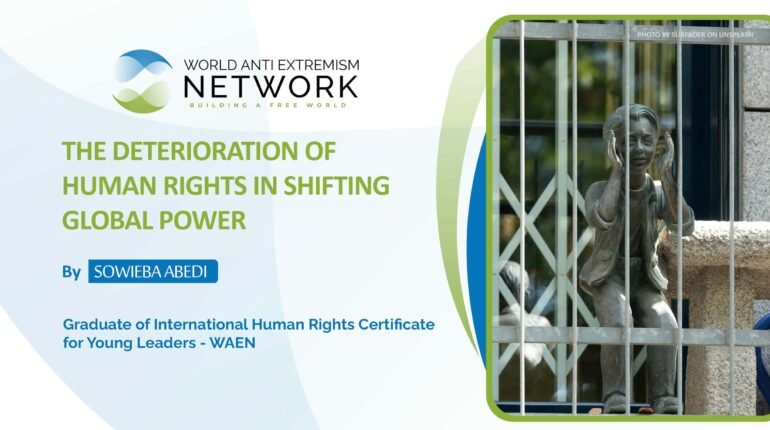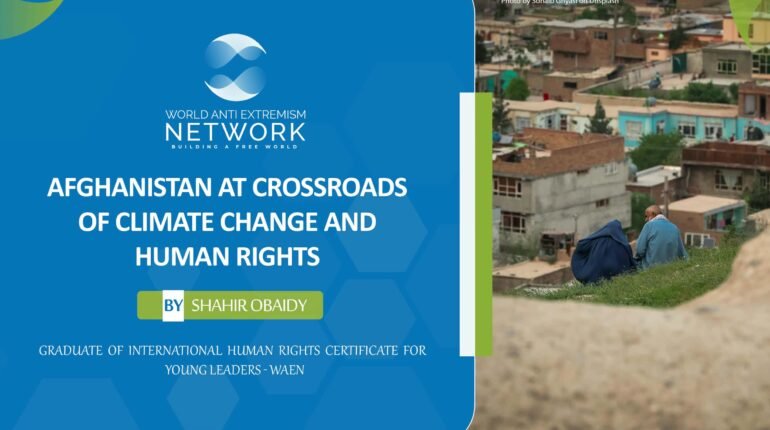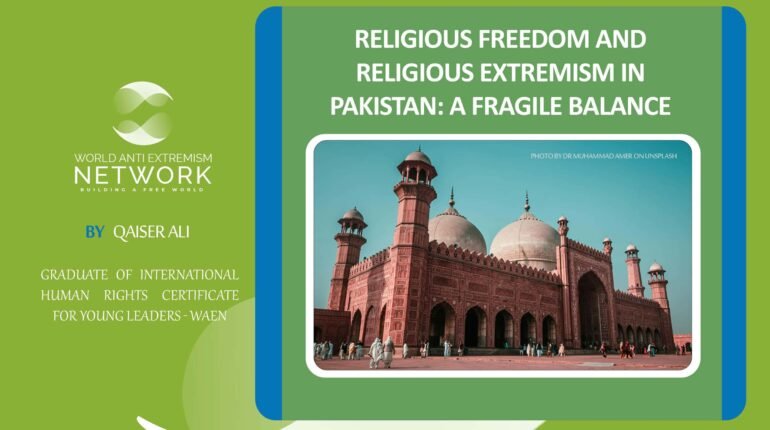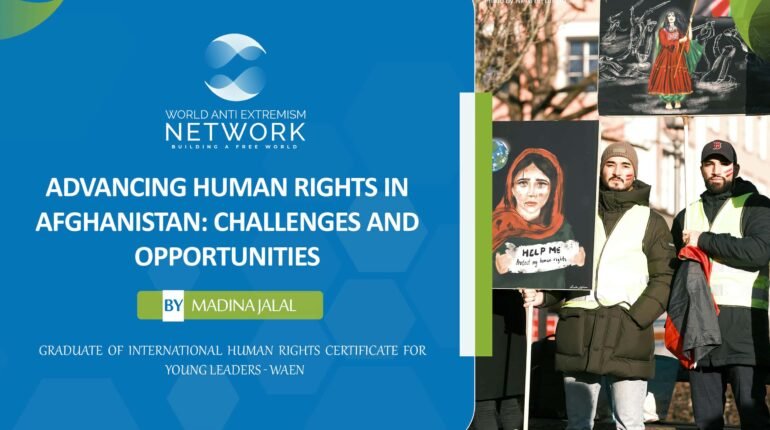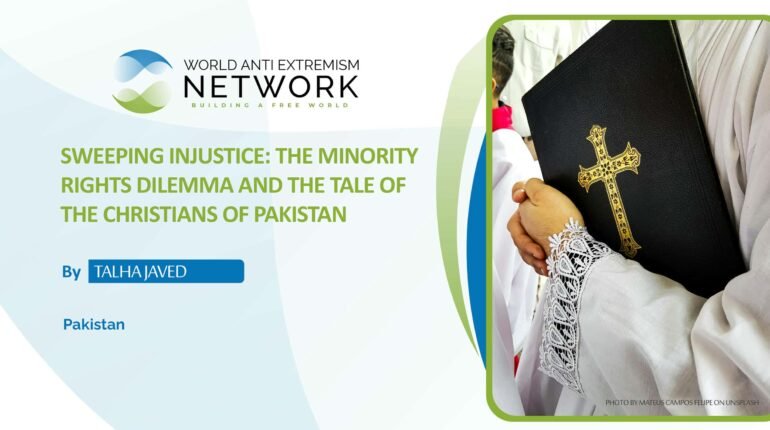The unseen suffering: Unveiling human rights abuses in Pakistan
- World Anti Extremism Network
- The unseen suffering: Unveiling human rights abuses in Pakistan

Human rights in Pakistan have been a pressing concern for decades. Despite international scrutiny and the tireless efforts of local activists, issues such as freedom of expression, women’s rights, minority rights, and enforced disappearances persist across the country. Since its violent inception in 1947, Pakistan’s history has been marked by political instability, military coups, and a constant tug-of-war between secular and religious forces. These tumultuous years have set the stage for ongoing human rights struggles.
Freedom of Speech and Media Suppression
In Pakistan, freedom of speech is constantly under threat. Bloggers, social media activists, and journalists often face harassment, intimidation, and even assassination. One of the most infamous cases was the abduction and beheading of journalist Daniel Pearl by extremists in Karachi in 2002. Amnesty International Journalist Daniel Pearl was abducted and murdered. Journalist Hamid Mir, known for his critical stance against the state institutions, survived an assassination attempt in Karachi in 2014 after being shot multiple times. Additionally, the Pakistani government imposes strict regulations on the press. The Pakistan Electronic Media Regulatory Authority (PEMRA) often suspends or warns media outlets that uncover corruption or criticize government policies. The Prevention of Electronic Crimes Act (PECA) is used to prosecute those who express dissenting views online, stifling free speech. Social media platform X, previously known as Twitter, is also banned in Pakistan since April 2024
Women’s Rights
Despite some progress, violence and discrimination against women remain rampant in Pakistan. Cultural norms and historical practices often suppress women’s rights, and the legal system offers little protection. In 2002, Mukhtar Mai was gang-raped as a form of honor revenge ordered by a local council. Her courageous fight for justice exposed the deep patriarchal biases within the legal system. The 2016 murder of social media celebrity Qandeel Baloch by her brother in the name of “honor” shocked the nation and the world. Her death underscored the brutal tactics used to silence women who challenge societal norms. Forced marriages, honor killings, acid attacks, and domestic abuse remain widespread. Despite the passage of the Anti-Honor Killing Laws in 2016, social attitudes are slow to change, and enforcement remains weak.
Growing Threat of Militancy in Khyber Pakhtunkhwa
Militancy in Khyber Pakhtunkhwa has been a growing threat, with armed factions exploiting the region’s rugged terrain and porous borders with Afghanistan. The Taliban’s resurgence after 2001 led to numerous attacks on government institutions, civilians, and military personnel. In 2014, the Taliban attacked the Army Public School in Peshawar, killing over 140 students and teachers. This horrific event highlighted the militants’ brutal tactics and the region’s instability.
The threat of militancy has overwhelmed Pakistan’s Khyber Pakhtunkhwa (KPK) province for many years. This growing threat and danger seriously threaten the region’s stability and security. The use of violence to impose their extreme ideology through force is what defines militant groups in Khyber Pakhtunkhwa. If we look at the background and geography, the Khyber Pakhtunkhwa province of Pakistan has been a center for rebellious operations. Just because of its closeness to Afghanistan, over the international borders, the area is vulnerable to extremist penetration. In addition, due to socioeconomic factors like unemployment, poverty, and low levels of education, the local community is more deteriorated and vulnerable to radicalization.
Extrajudicial Killings and Police Brutality
Extrajudicial killings and police brutality are rampant in Pakistan. Law enforcement agencies often conduct “encounters,” where suspects are killed without a fair trial. In 2018, nationwide protests erupted over the killing of aspiring model Naqeebullah Mehsud during a fake encounter in Karachi. Suspects, particularly from underprivileged backgrounds, frequently endure severe torture and abuse in custody to extract forced confessions. Despite constitutional protections, justice for victims is rare.
Internally Displaced Persons (IDPs): The Forgotten Victims
Millions of Pakistanis have been forced to leave their homes and livelihoods behind because of military activities, natural calamities, and conflict, making internal displacement another grave issue. The most affected regions by this issue are the Federally Administered Tribal Areas (FATA) and Balochistan. Counter-terrorism operations like the Operation Zarb-e-Azb launched in North Waziristan, led to the displacement of thousands of people to neighboring cities and provinces. Moreover, during the military offense against the Taliban in the Swat Valley, over two million people were displaced and had to leave behind their homes, assets, and livelihoods. Over the years, this has sparked grievances among the individuals affected by these military operations and people have risen against the state in an act to achieve reparations and compensations for the damages inflicted upon them.
Owing to natural disasters, like the devastating floods of 2010, which affected nearly 20 million people and led to a severe humanitarian crisis, and the earthquake that struck Northern Pakistan in 2015, have proved to cause significant displacement and crisis, particularly in the province of Khyber Pakhtunkhwa.
Children’s Rights
Children in Pakistan confront various challenges and difficulties including child labor, limited access to education, and child marriages, which pose a significant threat to the rights of children in Pakistan. A report by UNICEF shows that an estimated 22.8 million children, between the ages of 5 to 16, do not (and cannot) attend schools and are subjected to the harsh circumstances of street beggary and child labor. These statistics portray Pakistan as being among the countries with the highest number and ratio of out-of-school children.
It is quite common for children to work in hazardous conditions, where they are paid very little for dangerous jobs, especially in the informal sector. Child labor is utilized mostly in brick kiln and carpet weaving industries. Despite legal provisions and laws against child labor, poverty forces families to send their children out to work because of the inefficient enforcement and application of these laws.
Around 21% of females are married off or are forced to get married before turning the statutory age of 18, marking a significant violation of rights to children and making early marriages another critical issue. Early marriages create a vicious cycle of poverty, poor health, and education. Conservative societal factions have opposed the attempts to raise the legal age of marriage to 18.
Human Rights Defenders: Voices of Change
Despite the challenges, human rights defenders in Pakistan continue to advocate for justice. Organizations like the Human Rights Commission of Pakistan (HRCP), the Aurat Foundation, and the Edhi Foundation play crucial roles in documenting violations and supporting victims. Renowned advocate Asma Jahangir, who co-founded HRCP and served as the UN Special Rapporteur on human rights, left a lasting legacy. Her dedication inspires a new generation of activists to continue the fight for human rights.
Recommendations
Financial support is crucial for human rights organizations working in Pakistan; these organizations should advocate for policy changes and legislation on a national level to protect human rights, particularly for women. They should provide legal assistance, counseling, and support to victims of human rights abuses within Pakistan as mostly they are deprived of such access, they should work with local communities, local organizations, community leaders, and government officials to raise awareness about human rights and empower them to demand their rights. These organizations should raise public awareness about human rights issues through Electronic and social media campaigns, events, and publications.
International Security and Call for Freedom
The United Nations along with other international human rights organizations have served as the primary conduits of surveillance of Pakistan’s human rights situation. Pakistan’s conformity to international human rights standards is annually assessed by the UN Human Rights Council, after which it issues reports and suggestions. NGOs that document atrocities and campaign for change include Amnesty International and Human Rights Watch. Criticism globally has concentrated on issues including unlawful disappearances, extrajudicial killings, and the constraints on the freedom of expression and demonstration. Consequently, Pakistan has faced diplomatic scrutiny to strengthen its human rights policies.
Despite these measures, challenges persist, which show how essential it is to continue undertaking integrated national and international efforts to safeguard and promote human rights in Pakistan.
Conclusion:
Addressing human rights violations in Pakistan remains a crucial challenge. It requires integrated efforts from both the state and civil society. Strengthening state institutions, promoting tolerance, and ensuring the rule of law are essential to ensure every citizen can exercise their fundamental rights. Through collective action and unwavering commitment, a just society is within reach

About the Author
Abid Ali currently enrolled as a Phd scholar at institute of Peace and Conflict Studies, University of Peshawar. He holds a Bachelors and Masters degree in Pace and Conflict Studies. He actively engages in community service, fostering inclusivity, respect and pluralism through education and advocacy. He is a dedicated peacebuilding practitioner with 6 years of experience in organizing campaigns and events to raise awareness about peace-related issues and community development. With a strong passion for promoting peace and social justice, he has worked with diverse communities, organizations, and governments to build a sustainable and peaceful society.
The opinions expressed in these articles are solely those of the authors and do not reflect the views or positions of the organization. If you find any information incorrect, please contact (research@worldantiextremism.org), and we would be happy to assist you. You can download, distribute, and reuse this work, provided you credit the author and cite the original source.
Related Articles
Subscribe to our newsletter and stay updated.
Contact
Toronto, Ontario, M1L 0E5 Canada
Subscribe to our newsletter and stay updated.
Contact
Toronto, Ontario, M1L 0E5 Canada
Subscribe to our newsletter and stay updated.
Contact
Toronto, Ontario, M1L 0E5 Canada

